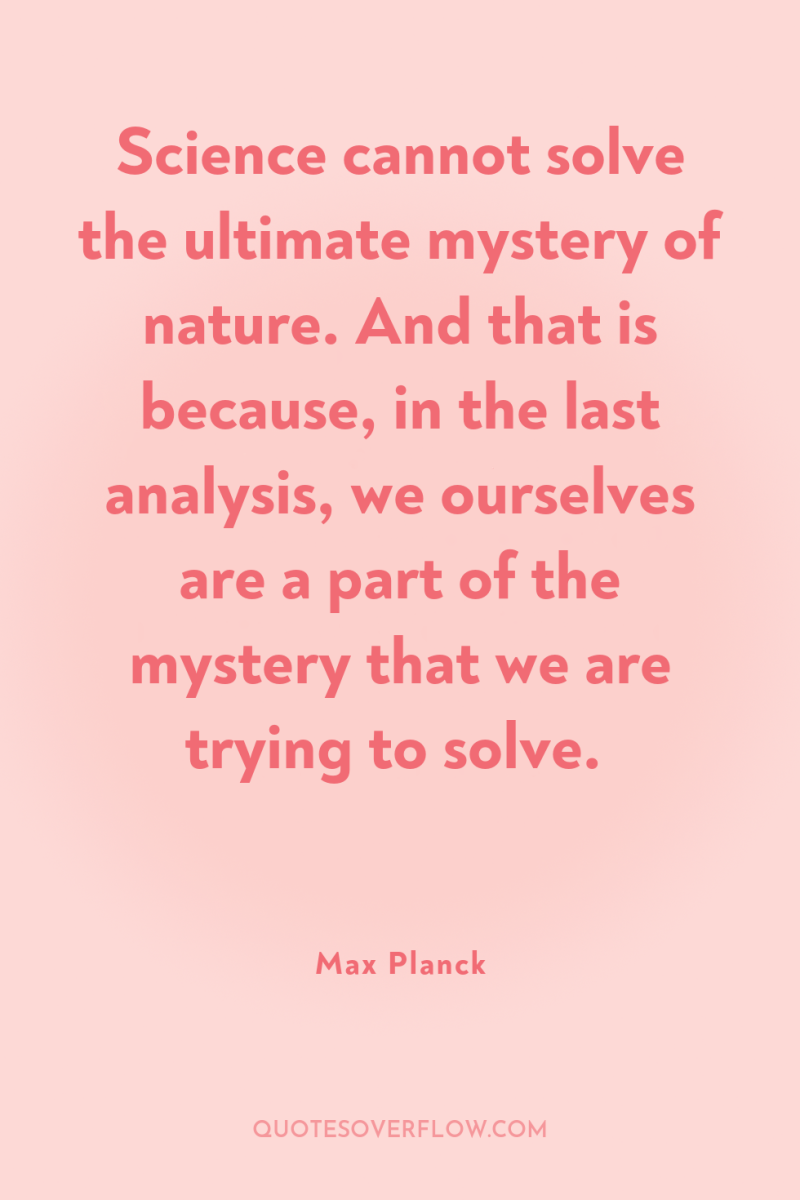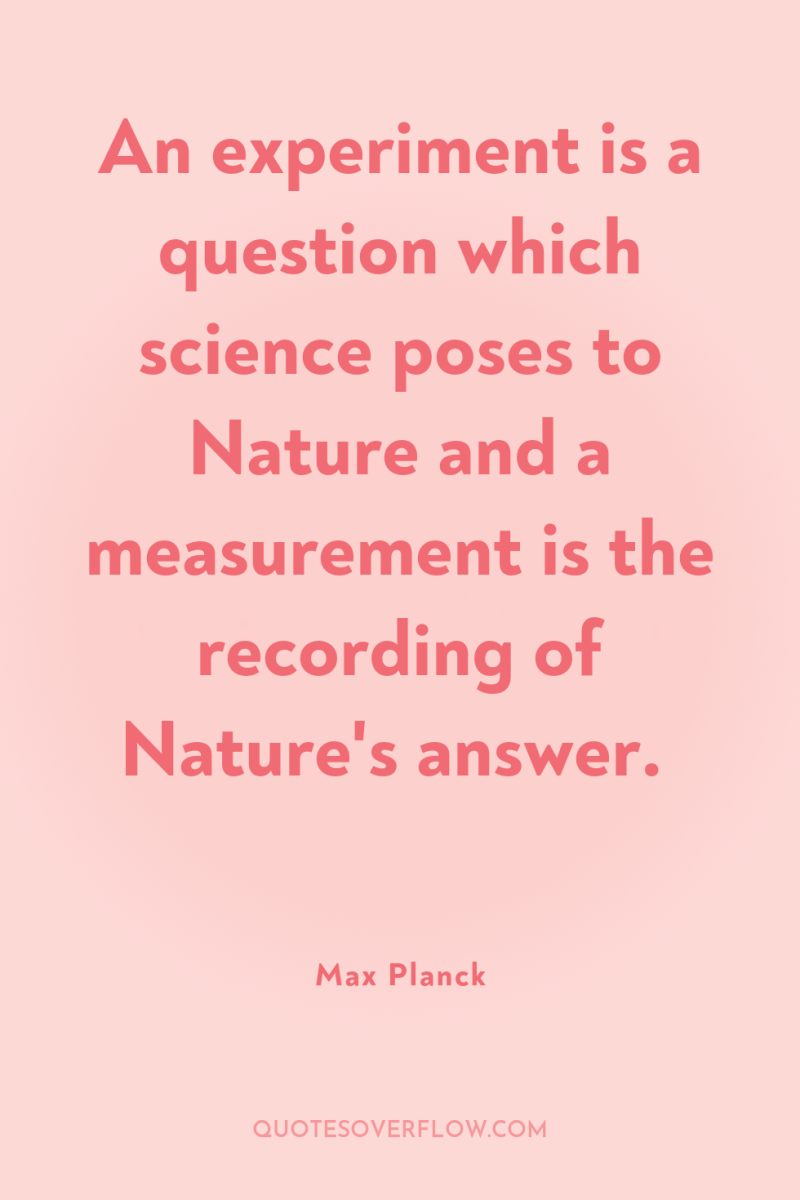
1
It is not the possession of truth, but the success which attends the seeking after it, that enriches the seeker and brings happiness to him.Max Planck

2
Science cannot solve the ultimate mystery of nature. And that is because, in the last analysis, we ourselves are a part of the mystery that we are trying to solve.Max Planck
3
A new scientific truth does not triumph by convincing its opponents and making them see the light, but rather because its opponents eventually die, and a new generation grows up that is familiar with it.Max Planck

4
The assumption of an absolute determinism is the essential foundation of every scientific enquiry.Max Planck
5
New scientific ideas never spring from a communal body, however organized, but rather from the head of an individually inspired researcher who struggles with his problems in lonely thought and unites all his thought on one single point which is his whole world for the moment.Max Planck

6
An experiment is a question which science poses to Nature and a measurement is the recording of Nature's answer.Max Planck
7
[I do not believe] in a personal God, let alone a Christian God.Max Planck
8
The Theory of Relativity confers an absolute meaning on a magnitude which in classical theory has only a relative significance: the velocity of light. The velocity of light is to the Theory of Relativity as the elementary quantum of action is to the Quantum Theory: it is its absolute core.Max Planck
9
Science enhances the moral value of life, because it furthers a love of truth and reverence–love of truth displaying itself in the constant endeavor to arrive at a more exact knowledge of the world of mind and matter around us, and reverence, because every advance in knowledge brings us face to face with the mystery of our own being.Max Planck
10
This is one of man's oldest riddles. How can the independence of human volition be harmonized with the fact that we are integral parts of a universe which is subject to the rigid order of nature's laws?Max Planck
11
The goal is nothing other than the coherence and completeness of the system not only in respect of all details, but also in respect of all physicists of all places, all times, all peoples, and all cultures.Max Planck
12
Anybody who has been seriously engaged in scientific work of any kind realizes that over the entrance to the gates of the temple of science are written the words: 'Ye must have faith.'Max Planck
13
A scientific truth does not triumph by convincing its opponents and making them see the light, but rather because its opponents eventually die and a new generation grows up that is familiar with it.Max Planck
14
Scientific discovery and scientific knowledge have been achieved only by those who have gone in pursuit of it without any practical purpose whatsoever in view.Max Planck
15
We have no right to assume that any physical laws exist, or if they have existed up until now, that they will continue to exist in a similar manner in the future.Max Planck